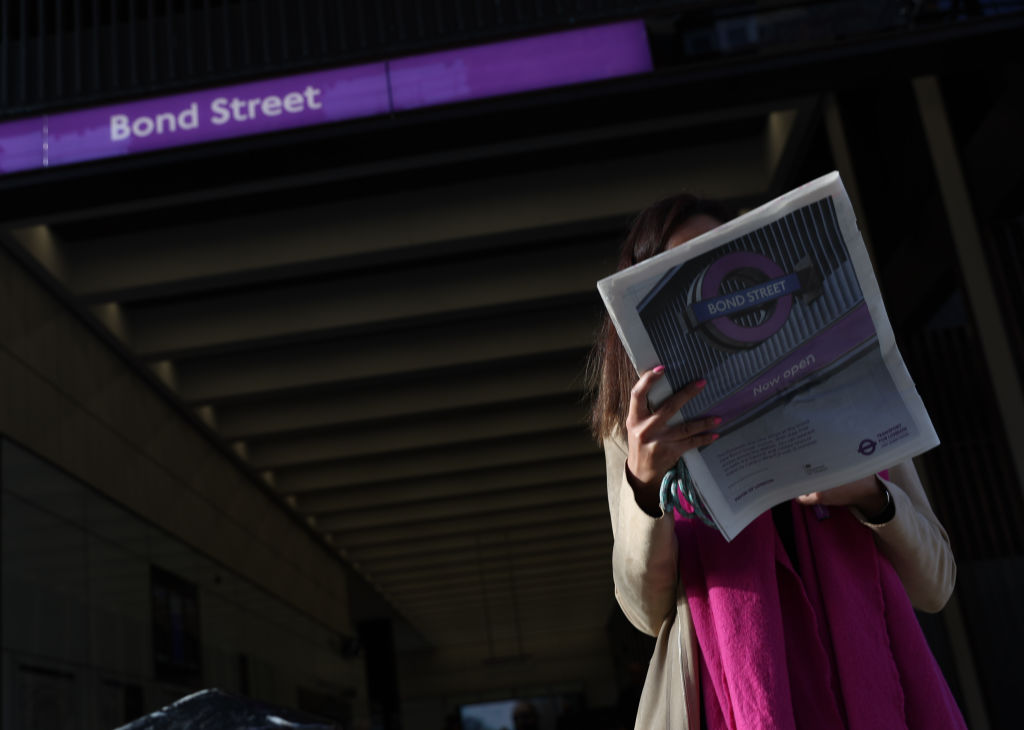Scrimping and saving by culling more transport investment will hurt all of us

The Bond Street stop on the Elizabeth Line is finally open, five months after the line first went into service. And from this Sunday, 6th November, trains will run every three to four minutes, seven days a week, for the first time, through to Abbey Wood from Heathrow and Reading with no need to change at Paddington or Liverpool Street.
This is excellent news for commuters, visitors to London and for businesses all over the capital, including of course in the City.
Transport plays an absolutely fundamental role in helping the business community recover from the damage by the Covid-19 pandemic. Footfall on the Tube network has been steadily rising as more workers look to return to their desks. Last week, for the first time on a weekday, it reached 80 per cent of pre-pandemic levels.
Troubles remain, however. Unfortunately, the first through-running days of the Elizabeth Line will be blighted by strike action next week and the Mayor, Sadiq Khan, has already warned of the possibility of fare rises of up to 10 per cent next year – blaming conditions attached to the recent government bailout of Transport for London (TfL) finances.
Of course, a cost-of-living crisis is not the ideal time to start charging Londoners more to get into their place of work or night-out destination. The government and TfL must co-operate on alternative solutions, including, ambitious brand partnerships, better use of TfL property assets and a more creative, flexible approach to fares.
Such options would make the network more accessible and boost numbers coming into London at all times of the day. On the buses, the mayor himself showed the way forward by launching his Hopper fare, offering unlimited journeys for a flat rate within one hour, shortly after coming to power in 2016.
But since then we have seen little or no such creative thinking across the network.
A failure to push the boundaries in this way risks a return to the recent cycle of piecemeal funding deals which only act as a sticking plaster, do nothing for commuters, and don’t come close to addressing the long-term issues affecting TfL.
Looking more broadly at the national picture, the new Prime Minister, Rishi Sunak, and the Chancellor, Jeremy Hunt, will struggle to balance the country’s books. In scrambling for the savings they need, they would do well to focus on the benefits that improved transport infrastructure can bring up and down the land.
For example, reports suggest many major projects face having the pause button pressed, including the budget for the HS2 rail line originally planned to connect London, Birmingham and Manchester. Not only would this be a bad thing for the capital, it would hamper attempts to boost longer-term growth across the UK. As the old saying has it, when London succeeds, the rest of the country succeeds, and vice-versa.
If ministers think HS2 doesn’t work in its current planned form, why not work out a way in which it does, rather than simply abandoning it as a white elephant?
As chair of the Eastern City Business Improvement District, I want to lead efforts to bridge new thinking, develop innovative new concepts for the private sector and pose policy solutions both for the government and for City Hall.
To make London a truly 24/7 global city, continued co-operation on all sides, between government and the business community, between the public and private sectors, is the key. Nothing should be off the table in the drive to keep improving transport links and passenger experiences for workers, visitors and tourists.
This will go a long way towards helping us achieve our goal of opening up the City of London for all, getting more people into London on TfL services, and boosting the long-term growth prospects of the whole country.
